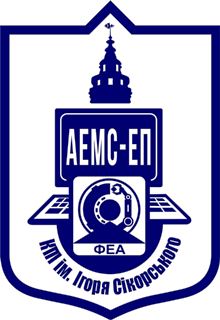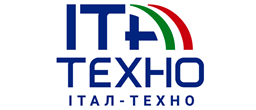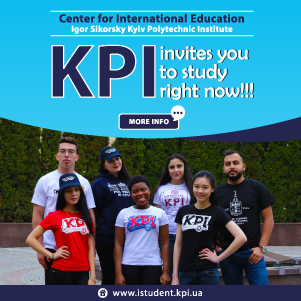MATLAB EXPO 2021 was held in May 4–5. Many topics were represented concerning control, electric drives, optimization techniques etc. In this post we gathered presentations about electric vehicles, electric mobility in general and fuel cells.
1. Development of Novel Sensor Fusion Architectures for Autonomous Vehicles
Pranav Manpuria, Rajkumar Palanisamy, Flux Auto
» Show more
Development of Novel Sensor Fusion Architectures for Autonomous Vehicles
Flux Auto mainly focuses on developing self-driving technology in trucks and cars to increase the viable commutability and sensor fusion plays an important role in providing a complete situational awareness for the vehicle even in harsh weather conditions like snow, rain, fog where different sensors work in different conditions.
Fusing the data from multiple sensors improves the 3D perception and determines the position, velocity, and orientation of other participants in the scenario. Different sensor fusion architectures like detection level fusion and track level fusion from Sensor Fusion and Tracking Toolbox™, Automated Driving Toolbox™ and MATLAB Coder™ were used to develop a novel architecture for multilevel fusion and was evaluated using OSPA and GOSPA metrics.
In this talk we will be talking about the following points:
- JPDA-based 3D multi-object tracking
- Density-based spatial clustering for detection-level fusion using GNN Tracker
- Implementation of ToMHT, GM-PHD, and JPDA for track-level fusion
- Effective filters and multi-object trackers for use on the sensors in autonomous stack
- C++ code generation for the sensor fusion architecture designed in
- MATLAB® for real-time deployment and testing
- Multi-sensor data association for real-time and synthetic data
- Multi-sensor calibration in real time and concatenation of units
» Show less
2. Low-Speed Vehicle Motion Control Algorithms for Automated Driving Functions
Hemanth Chakravarthy Mudduluru, Dr.-Ing. Marco Wegener, ZF
» Show more
Low-Speed Vehicle Motion Control Algorithms for Automated Driving Functions
ZF Friedrichshafen AG has a rich product portfolio with various Advanced Driver Assistance Systems (ADAS). While pursuing the “Full System Supplier” business strategy, ZF uses its many years of experience in model-based engineering and continuously extends the ADAS capabilities to new use cases and a higher degree of autonomy.
In this presentation, a short overview is given of our approach to solving the maneuver planning and electric vehicles motion control problem for low-speed scenarios. We will show how development frameworks—especially MATLAB® and Simulink®, the corresponding toolboxes, and technical guidance from MathWorks—enabled our engineers to accomplish the complex task of designing highly accurate and robust trajectory planning and vehicle motion control for ZF’s automated driving products.
» Show less
3. Autonomous UAV Development and Evaluation with MATLAB and Simulink
Julia Antoniou, Andrew Grabowski, MathWorks
» Show more
Autonomous UAV Development and Evaluation with MATLAB and Simulink
Unmanned aerial vehicle (UAV) or unmanned electric vehicles usage is continuously increasing in a variety of commercial applications such as agriculture, construction, and delivery. Developing autonomous UAV requires multi-disciplinary skillsets covering various technology domains (controls, perception, motion planning) and executing simulations to reduce risk/cost/rework before flight testing. In this session, learn how you can use MATLAB® and Simulink® in development workflows for autonomous UAV applications that span from design and simulation to deployment and test, including:
- Defining system architectures
- Modeling UAV systems of varying fidelities
- Simulating autonomous UAV applications in cuboid and 3D simulation environments
- Evaluating autonomous algorithms for self-awareness and situational awareness
- Automating verification and validation tasks to ensure system robustness
- Automatically generating code and deploying to UAV hardware such as autopilots and onboard compute boards
- Interactively analyzing post-flight telemetry data with the Flight Log Analyzer app
» Show less
4. Mission Planning of a Quadcopter Using a Digital Twin
Maria Gavilan-Alfonso, Sara Nambi, MathWorks
» Show more
Mission Planning of a Quadcopter Using a Digital Twin
Simulation is becoming increasingly important in today’s world. Using models of machines and systems, you can run simulations before actual devices are built and deployed. The digital representations used to simulate physical systems are known as digital twins, and each physical entity has its own digital representation. Digital twin has become one of the most promising emerging technologies.
In this hands-on workshop using MathWorks cloud tools, you will use a digital twin of a quadcopter to collect simulation data, analyze collision avoidance controls, and test scenarios to ensure the drone can accomplish its critical mission. The digital twin uses a physics-based modeling approach using Simscape™. You will learn about autonomous navigation with path planning algorithms using the Navigation Toolbox™ and will also see how to predict component failure using the Predictive Maintenance Toolbox™ to successfully replan the mission.
You will walk away from the workshop with a better understanding of these trending technologies that can be used in multiple application areas.
» Show less










